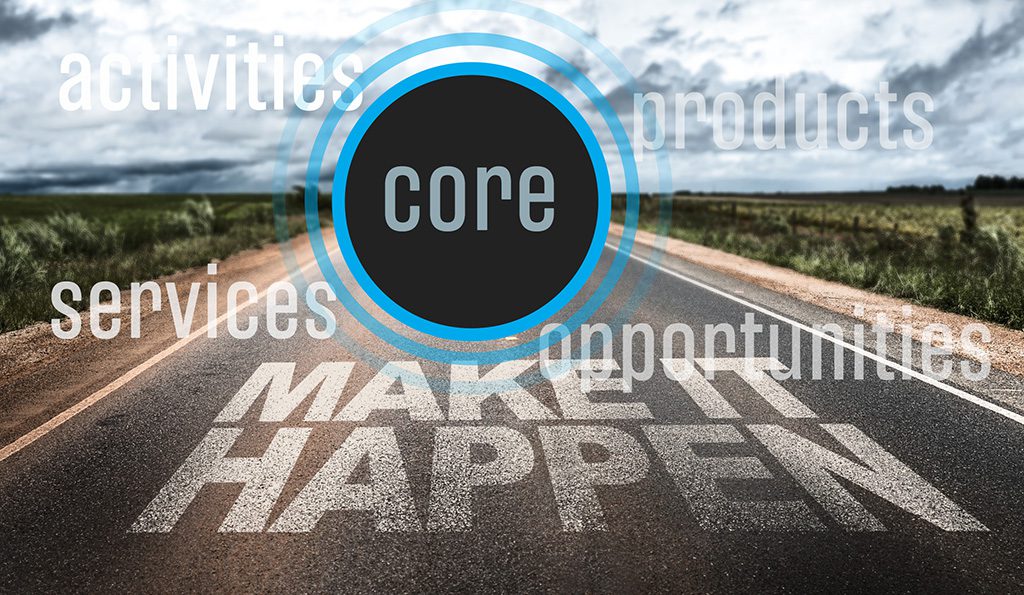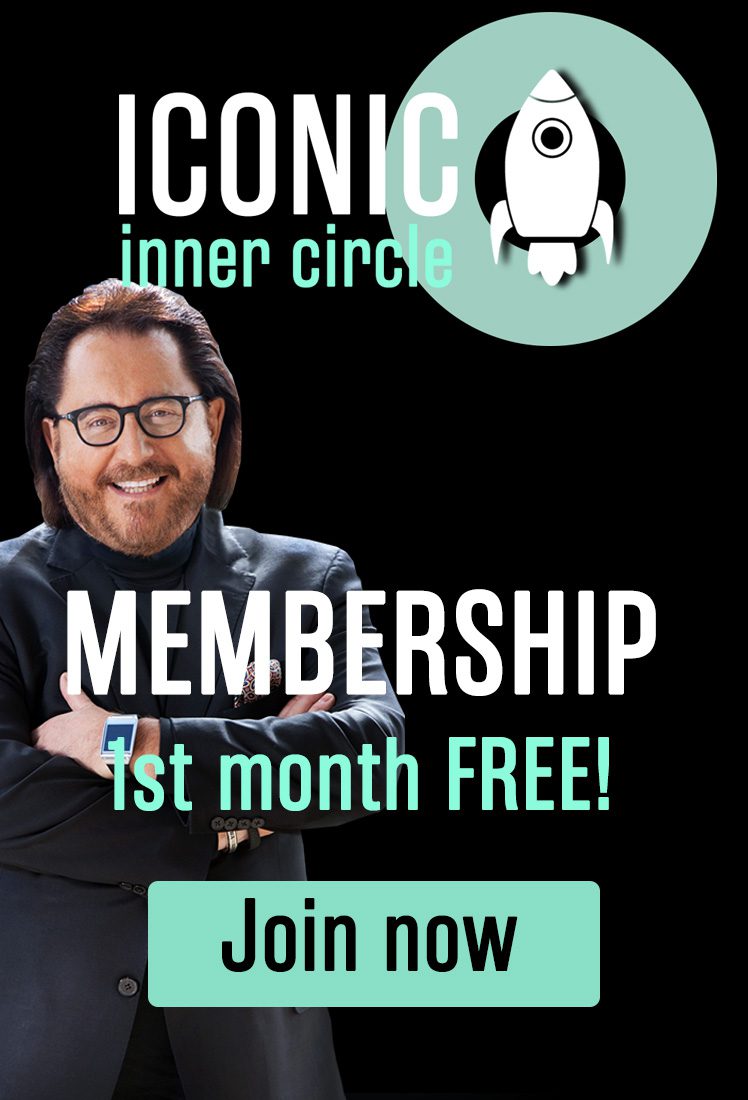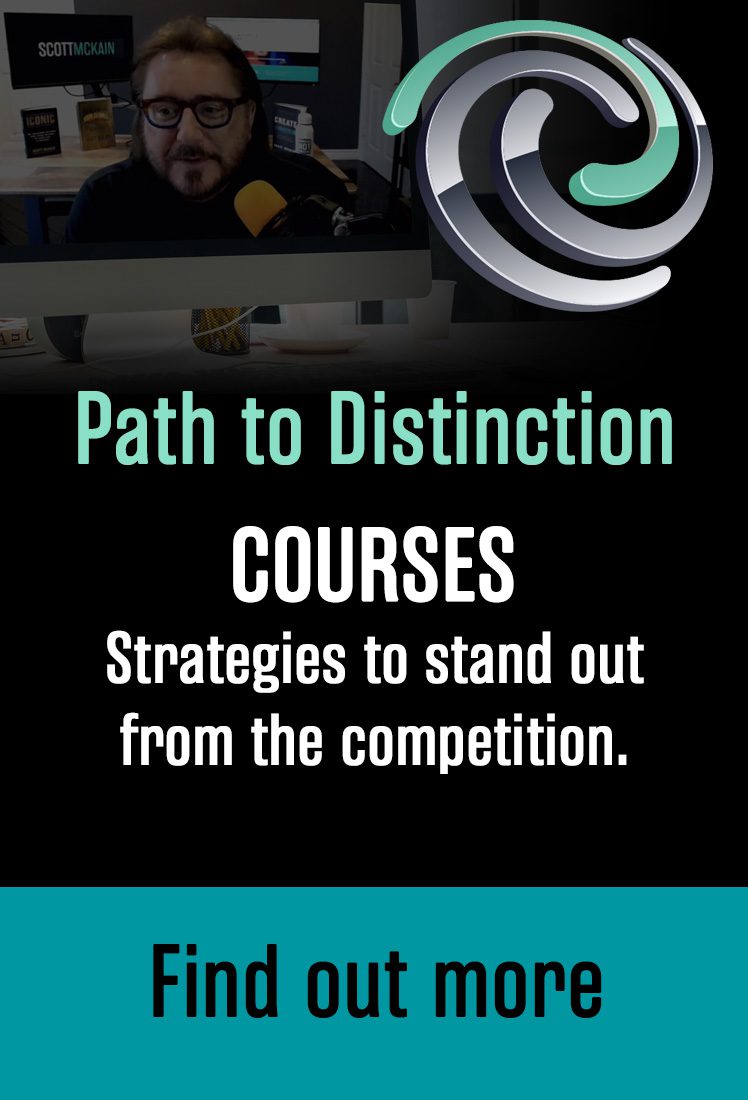It was a conversation that changed everything about how I viewed my own business – and, perhaps, how you should look at yours.
Several years ago, my wife had just passed, and my friends in the legendary country band Diamond Rio were concerned about me. Rather than let me remain alone in the house I had shared with my recently departed wife, the band invited me to go on their tour bus with them for a West Coast swing of concerts in California.
Late one night heading down I-5, one of the guys mentioned, “Our businesses are so much alike.” I offered my opinion that our respective endeavors were nothing alike!
I was a speaker giving business presentations, traveling alone (usually by air, not by bus) on the road for corporate audiences — they were a Grammy-award winning band, traveling together on a bus to play their music to fans who individually purchased tickets by the thousands.
Drawing a circle on a piece of paper, one of the band members said, “The core of everything for us is strong material — great songs.” He filled in the circle with the word “songs.” Then, drawing several lines radiating out from the ring, he put a word at the end of each line. One said, “gigs.” Others had aspects such as “merch” (for band merchandise like t-shirts and posters), “fan club memberships,” “PR,” “airplay,” and “sponsorships.”
“If we have a great song — and we’ve been blessed with many,” he said, “we get airplay on the radio, people want to come to hear us play at gigs, buy our albums, sign up for fan club memberships, corporations engage us for sponsorships and to appear on their commercials, and the world is more receptive to our efforts in public relations and the charitable work we do for Boys & Girls Clubs.”
“However,” he continued, “if we don’t have great songs, then NONE of this is possible. We recognized that while the most profit might come from our live concerts, that’s not the core of our business.”
“The core of our business,” he said, “is strong songs.”
He took another sheet of paper, drew another circle, and inside of that, he wrote, “content.”
“Here’s where our businesses are alike. The core of your business is in the insights and ideas you have.” Once again, he drew lines out from the circle on the page. Writing words at the ends of these new lines as he spoke, he stated, “That content is expressed through…” and he wrote, “speeches,” “books,” “social media,” “PR,” “consulting,” “coaching,” “training,” and “virtual.”
“Likely, your greatest current income is from the speeches you deliver — just like ours is from the concerts we perform. But the core of your business has to be your content. Everything must spring from that.”
It was the best consulting session I’ve ever received — and it changed how I viewed my business forever. I stopped looking at the product I spent most of my time selling — at that point, it was keynote presentations — and started focusing more on what had been revealed to me as the core of my business. And, thankfully, the results I received from that advice years ago have been nothing short of phenomenal.
Now, I ask you…what is the core of YOUR business or profession? And how can you ensure that your core is as strong as possible?
- This is NOT, to use a trendy term, your “why.” Your why is personal — it’s the reason you do what you do. Your core is the center point of your efforts. It is the place from which all your activity will spring forth.
You may be like I was and think the core is what you sell the most — however, in many cases, it’s not. This confusion about your core may contribute to lost sales, productivity, and lack of employee and customer retention.
Examples about Apple are overused, but it makes the point in this situation. If an Apple product becomes too complex to use intuitively, it deviates from what we know to be the essential element that has made them great. I would suggest Apple’s core (pardon the pun) is “insanely easy to use.” It’s not a phone or computer, watch or accessories.
Other companies may have more advanced technology — for example, Samsung’s latest folding phone is remarkable. However, we trust that an Apple device will combine what Steve Jobs called “insanely great” products with what we, who are customers, presume in ease of use.
Yet, if you work in tech at Apple, you might have a different “ease of use” standard than the average customer. You might want to push the envelope of technology without as much regard for a newbie’s learning curve.
For example, how many websites do you imagine designers create to impress other competing designers — rather than be easily functional for a prospective customer? Ever been on a site where you cannot figure out where to go to get the answer you’re seeking? The core of the website should be to inform, engage, and inspire customers to do business with us — not to impress them with the new technological bells and whistles of our code.
Here’s what I would suggest: take a blank sheet of paper and draw a circle in the middle. Think long and hard about the word or words you’ll place there.
Next, draw lines that extend from your core and consider all activities, products and services, and future opportunities that can derive from it.
- Notice, as well, that if something isn’t congruent with your core, it detracts from the clarity required to create distinction in your market.
This approach could be the beginning of the deep thinking required to move you and your business to what you want to achieve. It certainly was for me.



